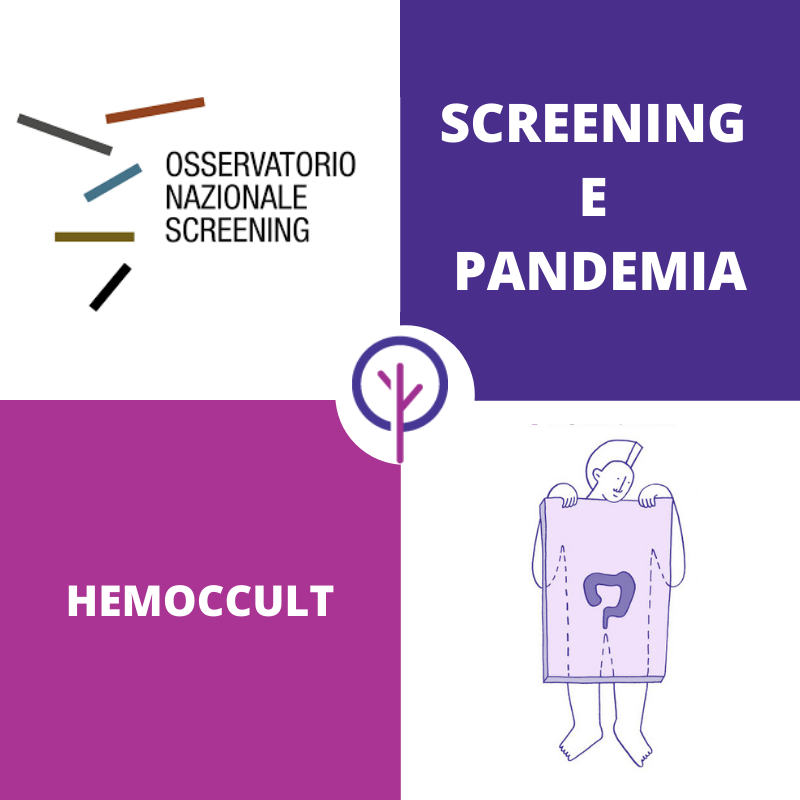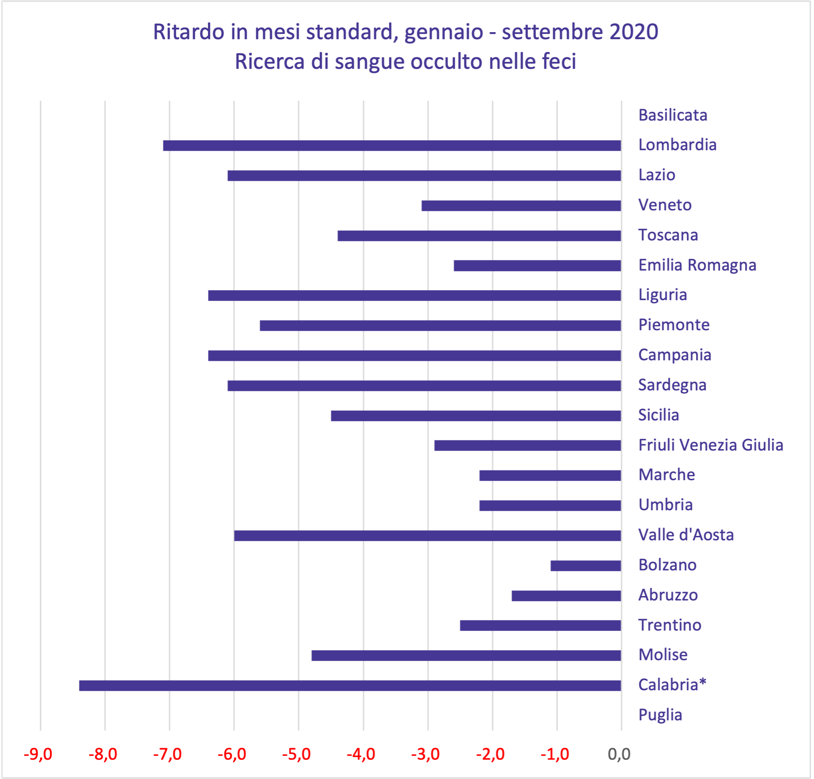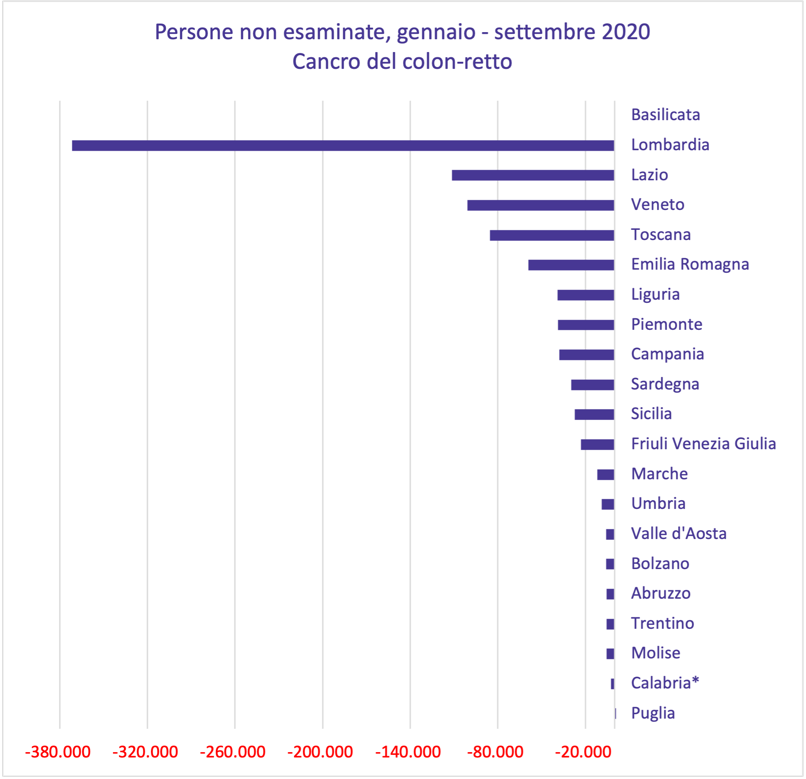Screenings in time of a pandemic
Screening of the colorectum

December 2nd, 2020
Due to the Covid-19 pandemic, cancer screening [1], including colorectal cancer [2], has been significantly delayed.
The National Screening Observatory [3] monitored these delays, obtaining the data presented in the graphs below.
The graphs show, for each Region, the delays accumulated in these months of the pandemic, the number of people not examined and an estimate of the diagnoses lost.
A particular situation is represented by Puglia, which started the screening program in the last months of 2019 and carried it out in the first months of 2020. For this reason, no delays have accumulated and the people examined are positive.
The delay in carrying out the screening accumulated more in the first months of the year, in correspondence with the lockdown, it then continued to accumulate, but at a slower rate.
On average, the accumulated delay is 4.7 standard months [4].
3 Regions, Emilia-Romagna, Marche and Trentino made up for part of the delay; Veneto did not further increase the delay.

* data relating to 3 USLs out of 5 - Graph 1. Accumulated delay in standard months.
These delays caused more than 900,000 screening exams to be skipped, equal to a 52.7% reduction compared to the previous year.
In Lombardy alone, more than 370 thousand tests for the search for occult blood in the faeces have been skipped.

* data relating to 3 USLs out of 5 - Graph 2. People not examined.
Consequence of the delays and the missed examinations are the missed diagnoses of colorectal cancer, estimated at 1,168.
Lombardy has the highest number of undiagnosed injuries, more than 300.

* data relating to 3 USLs out of 5 - Graph 3. Estimation of the diagnoses not carried out.
Source: Report on the resumption of screening - September 2020 (National Screening Observatory)
[1] A cancer screening test is a test that allows you to detect early stage cancer. In Italy there are currently three screening programs dedicated to breast, cervical and colorectal cancer.
[2] Colorectal screening consists in the search for occult blood in the stool, the examination is recommended every two years from 50 to 75 years and allows the identification of precancerous lesions.
[3] The National Screening Observatory was founded in 2001 and works as a technical tool to support both the Regions, for the implementation of screening programs, and the Ministry of Health, for the definition of operating procedures, monitoring and evaluation of programs.
[4] The number of months of activity required to make up for the accumulated delay if the program were to go at the same speed as the previous year, that is, each month it examined the same number of people observed in 2019.